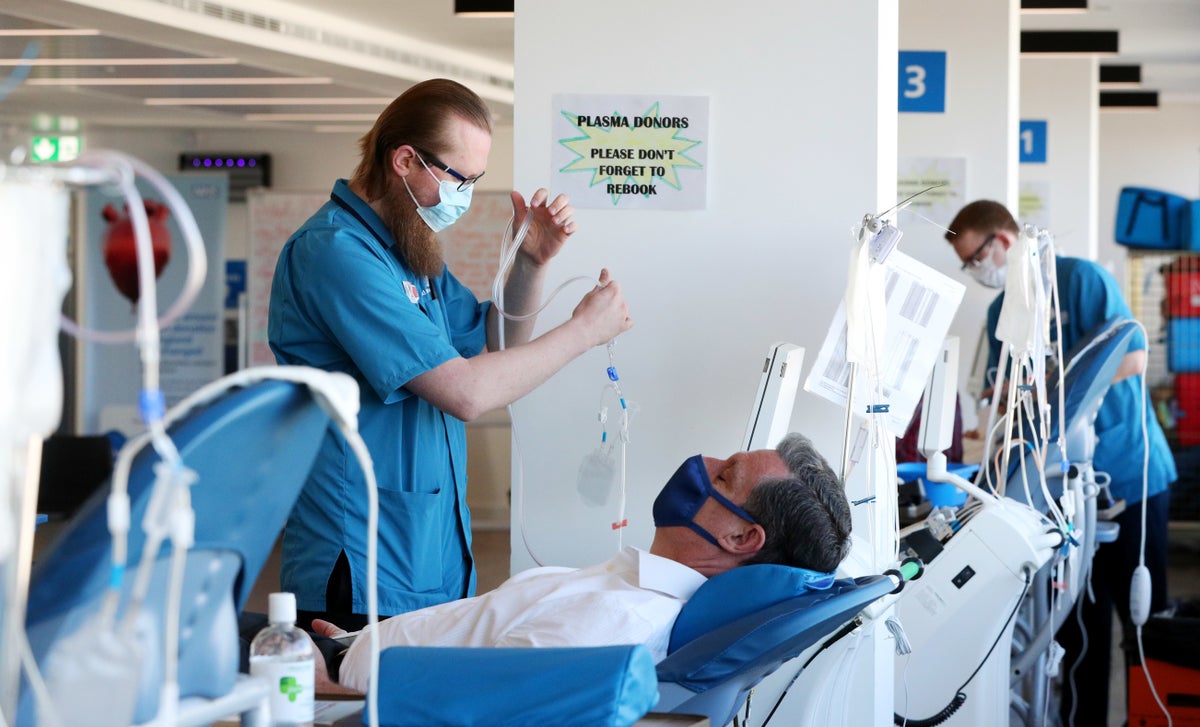
More than 130,000 blood donation appointments have been cancelled in the past 12 months due to NHS staff shortages, new figures reveal, prompting claims by Labour that government “incompetence” has left patients “paying the price”.
The disclosure comes just two weeks after the health service issued its first-ever amber alert as blood stocks ran dangerously low, with just two days’ worth of supply left for some blood types.
Staffing levels in the NHS are approaching crisis levels. Earlier this year MPs warned that the number of unfilled vacancies posed a risk to patient safety.
A report published in July said that, in England alone, there was a shortage of 12,000 hospital doctors and 50,000 nurses and midwives.
Healthcare professionals say that many workers are leaving the sector or reluctant to join it due to unsustainable workloads, growing demand and low pay.
Of the 137,136 appointments cancelled between October 2021 and September this year, more than 40,000 have been axed in the past two months alone.
Between October 2021 and April this year, the number of appointments scrapped remained below 10,000 but the figures have sky-rocketed since then.
Some 11,803 appointments did not go ahead in May 2022, 17,602 in June, 15,117 in July, 20,338 in August and 22,435 in September, according to the NHS Blood and Transplant (NHSBT) figures, given by health minister Will Quince.
NHSBT on 12 October issued an amber alert for blood supplies, meaning hospitals were asked to put in place management plans to protect stocks. O blood groups were in particular need.
The alert meant that some non-urgent operations that required blood were likely to be impacted, with hospitals advised to swap in other surgeries which do not require blood.
NHSBT said it urged doctors to help out by filling empty appointments at permanent donor centres in towns and cities which have extended hours and greater capacity.
Earlier this month the NHS made an urgent call for a record number of Black blood donors to come forward to treat the growing number of people affected by sickle cell disease.
Sickle cell disease is the name for a group of inherited health conditions that affect red blood cells.
Many patients with sickle cell need regular blood transfusions to stay alive. It is particularly common among people with an African or Caribbean family background.
John James, CEO of the Sickle Cell Society, said: “In the context of the recently issued first-ever NHS Blood Transplant Amber Alert, where blood supplies have fallen to critically low levels, the figures quoted are extremely worrying.
“NHS Staff shortages are having an impact on people needing blood, including people who live with sickle cell anaemia.
“It’s important that NHSBT put all of their efforts into recruiting more staff and work with charities such as the Sickle Cell Society to scale up their work to recruit more Black Heritage Donors.”
Wes Streeting, Labour’s shadow health secretary, claimed the crisis in NHS staffing levels showed the “weakness of this government”.
“People who want to help by donating are being turned away, for no other reason than a lack of planning by this incompetent Conservative government, and patients are paying the price,” he said.
“Labour has called for the Jabs Army of volunteers who helped during the pandemic to be recalled immediately to combat low blood supplies.
Mr Streeting added: “The next Labour government will tackle the root cause of NHS staff shortages by launching the biggest expansion of medical training in history, paid for by abolishing the non-dom tax status.”
The Department for Health and Social Care has been contacted for comment.







